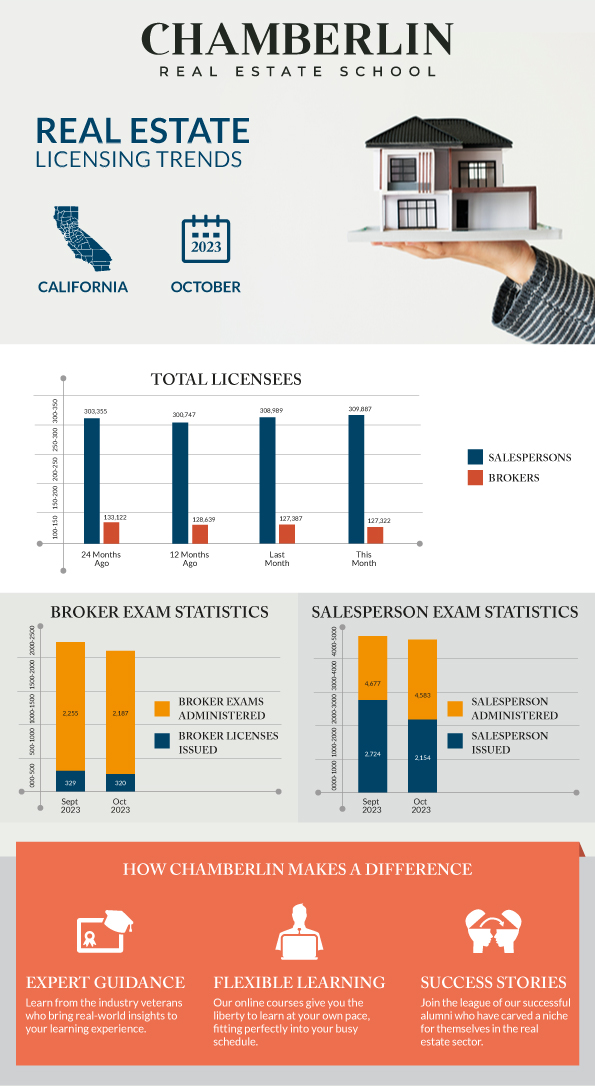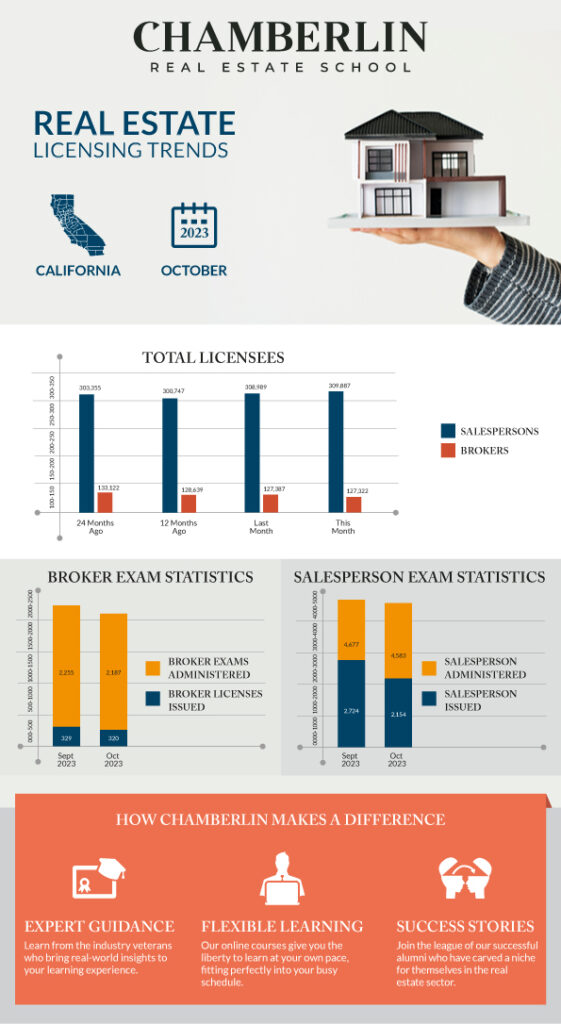To qualify for a real estate license, you’ll typically need to complete specific courses that cover essential topics related to the real estate industry. We’ll explore the courses you’ll need to take to get your real estate license and provide you with valuable information to help you make an informed decision.
Real Estate Principles
The first required course you’ll need to complete is Real Estate Principles. This comprehensive course serves as an excellent introduction to the California real estate business, making it ideal for new licensees. It covers a wide range of topics, including real property ownership, financing, landlord and tenant relationships, appraising, land use, and more. Here’s a breakdown of the course contents:
- The Business of Real Estate
- Real Property Ownership
- Transferring Real Estate
- Encumbrances
- Agency Contracts
- Financing Real Estate
- Government-Sponsored and Other Financing
- Escrow and Title Insurance
- Taxation
- Landlord and Tenant
- Appraising
- Residential Design and Construction
- Land Use
- Math
Completing the Real Estate Principles course will provide you with a solid foundation of knowledge and set you up for success in your real estate career.
Real Estate Practice
The second required course is Real Estate Practice. This course offers practical information and insights specifically designed for real estate salespersons and brokers. It covers important aspects of the industry, including prospecting methods, listing presentations, buyer representation, real estate financing, escrow, taxation, and property management. Here’s a breakdown of the course contents:
- Getting Started in Real Estate
- Ethics and Fair Housing
- Mandatory Disclosures
- Prospecting
- Listing Presentations
- Servicing the Listing
- Advertising
- The Buyer and the Property Showing
- Obtaining the Purchase Offer
- From Offer to Closing
- Real Estate Financing
- Escrow and Title Insurance
- Taxation
- Property Management and Leasing
By completing the Real Estate Practice course, you’ll gain valuable insights and practical skills necessary to navigate the real estate industry successfully.
Elective Courses
In addition to the two required courses mentioned above, you’ll also need to complete one elective course from a provided list. Here are the elective course options:
- Legal Aspects of Real Estate Online (Recommended)
- Real Estate Finance Online
- Real Estate Appraisal Online
- Real Estate Economics
- Real Estate Office Administration Online
- Property Management Online
- Escrows Online
It’s important to choose an elective course that aligns with your interests and career goals. While all the options are valuable, the Legal Aspects of Real Estate Online course comes highly recommended due to its relevance to the real estate industry.
Course Details
To give you a better understanding of each elective course, let’s take a closer look at their descriptions:
California Real Estate Principles:
This course serves as a comprehensive introduction to the California real estate business. It covers various areas of professional specialization and provides a deep understanding of real property ownership and the intricacies of the field.
California Real Estate Practice:
Designed for real estate salespersons and brokers, this course offers practical information on prospecting, listing presentations, buyer representation, financing, escrow, taxation, and more. It equips you with the knowledge and skills necessary for a successful career in real estate.
California Real Estate Finance:
This course provides a clear introduction to real estate finance in California. It covers topics such as the nature and cycle of real estate finance, different sources of real estate financing, federal and state financial regulations, loan underwriting, investment financing strategies, and more. It aims to help you understand how real estate loans are made and keep you updated on the latest changes in tax laws and lending guidelines.
California Real Estate Law:
This course introduces you to the vast body of law that governs real estate transactions in California. It covers topics such as the law of agency, duties and responsibilities of licensees, real estate contracts, property ownership, land use controls, escrows and title insurance, landlord/tenant law, and more. By completing this course, you’ll be able to recognize situations that require legal counsel and have a better understanding of your rights and obligations under the law.
California Real Estate Economics:
This course explores economic theories related to the real estate industry, with a focus on factors that influence changes in real estate value. It presents complex economic concepts in a practical manner, making it accessible to students with little or no background in formal economics. Topics covered include economic systems, supply and demand, the real estate market, financing and taxation, real estate investment, appraisal analysis, and more.
Property Management:
This course equips you with the knowledge and skills necessary for successful property management. It covers a wide range of management techniques applicable to different types of properties, such as apartments, office buildings, retail spaces, and industrial properties. You’ll learn about owner relations, marketing management, lease negotiations, tenant relations, maintenance and construction management, reports and insurance, and various other aspects of property management. The course also addresses important industry issues, including electronic technology, fair housing, ADA legislation, building security, and life safety.
Real Estate Office Administration:
Surviving and thriving in the real estate brokerage business requires effective management. This course provides guidance on setting up and running a successful brokerage. It covers topics such as analyzing the business climate, market analysis, business planning, organizational structure, financial management, marketing and advertising, staff recruitment and development, risk management, leadership skills, and effective communication. Whether you’re a new or experienced broker, this course offers valuable insights and strategies to help you manage your real estate business effectively.
California Real Estate Appraisal:
This course focuses on the appraisal industry and its impact on real estate transactions. It covers the importance and purposes of appraisals, principles controlling real estate value, economic analysis, site evaluation, construction methods and materials, various approaches to appraisal (cost, sales comparison, and income), reconciliation and final value estimation, writing appraisal reports, computerization of the appraisal process, and considerations for different types of single-family residences. It also provides information on license and examination requirements, lender appraisal guidelines, and common errors and omissions.
California Real Estate Escrow and Title:
This course provides a comprehensive study of escrow and title insurance principles, from historical practices to modern-day practices in transferring property title. It covers topics such as property rights, escrow elements, title insurance basics, contracts, regional variations and practices in California, escrow accounting, lending and the escrow process, protecting the consumer, specialty escrow transactions, advanced title insurance underwriting, default and foreclosure, and the role of the title insurer. By completing this course, you’ll gain a deep understanding of escrow and title processes in real estate transactions.
Recommended Elective Course
While all the courses have their own merits, the Legal Aspects of Real Estate Online course is highly recommended. This course dives deep into the legal framework surrounding real estate transactions. It helps you understand the legal responsibilities of licensees, the regulation of licensees, real estate contracts, property ownership, recording, property security devices, land use controls, escrows and title insurance, landlord/tenant law, and more. By completing this course, you’ll be better equipped to identify situations where legal counsel is necessary and ensure compliance with legal requirements throughout your real estate career.
Remember, the elective course you choose should align with your interests and career goals. Consider the areas of real estate that you find most intriguing or the aspects that you believe will be most beneficial to your future clients. Take the time to research and understand the content covered in each course to make an informed decision.
Course Delivery: Online Convenience
All the mentioned courses are available in an online format, allowing you to study at your own pace and convenience. Online courses provide flexibility, enabling you to balance your education with other commitments you may have. You can access the course materials from anywhere with an internet connection and learn at a time that suits your schedule. This flexibility is especially beneficial if you’re currently working or have other responsibilities.
Additionally, online courses often incorporate interactive elements such as quizzes and videos to enhance your learning experience. You’ll have the opportunity to engage with the material and test your understanding. Take advantage of these interactive features to deepen your knowledge and make the most out of your online learning experience.
The Bottom Line
To obtain your real estate license, you’ll need to complete the required courses of Real Estate Principles and Real Estate Practice. Additionally, you’ll choose one elective course from a list that includes options like Legal Aspects of Real Estate, Real Estate Finance, Real Estate Appraisal, and more. Each course covers essential topics relevant to the real estate industry, providing you with the knowledge and skills necessary for a successful career.
Consider your interests and career goals when selecting your elective course. If you’re unsure, the Legal Aspects of Real Estate Online course comes highly recommended due to its relevance and importance in the real estate profession.
Remember that all the courses mentioned are available in an online format, offering flexibility and convenience. Online learning allows you to study at your own pace while still accessing comprehensive and interactive course materials.
Chamberlin Real Estate School has helped students just like you to embark on a rewarding career as a licensed real estate agent, for over 70 years. We look forward to meeting you, and assisting you in achieving your goals!



